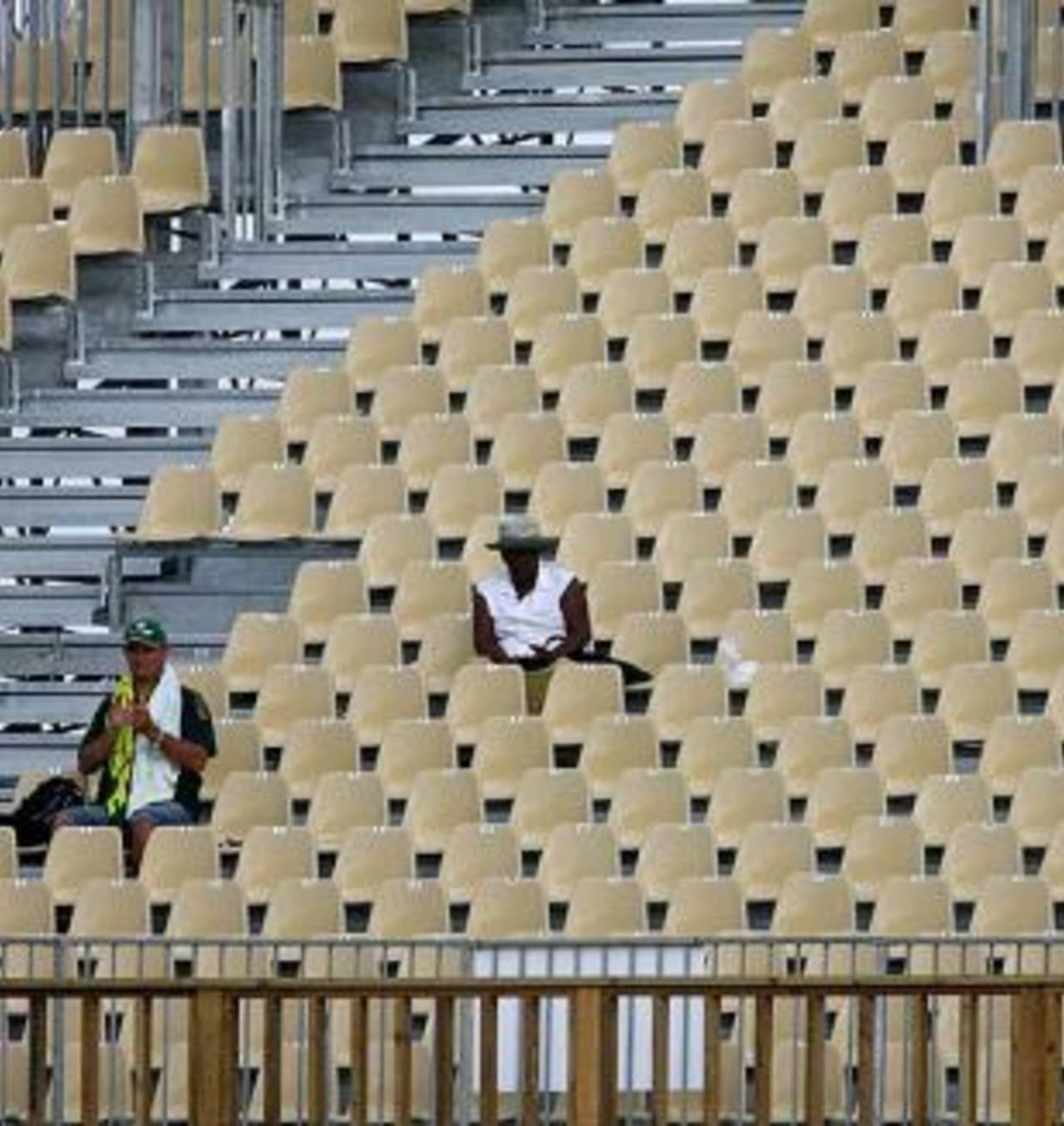Rahul Dravid's
eloquent plea for Test cricket - his words have the same grace as his shots - needs to be taken seriously, as does his thesis that T20 needs Test cricket. And he makes an old-fashioned plea for not putting profits from television rights above the greater need to develop the sport. It is interesting, too, that it comes at a time when the game's parents have been obsessing over whether a heat spot on a bat is good for the game.
You would expect Dravid to say what he does, and to be fair to him, the manner in which he thought about and played his cricket is consistent with what he advocates. But I can see those that run the game tut-tutting about romantics not making good businessmen.
Of those who earn money from the game, the ICC is doing fairly well. So are India, England and Australia, and there aren't alarm bells ringing in the accountants' offices in South Africa either. But of the others, Sri Lanka are broke, so, by their admission, are Pakistan. New Zealand are very honest about the state of their finances, and West Indies aren't exactly rolling in wealth. And there is some debate over whether Zimbabwe Cricket is broke or has been broken into.
That means a majority of cricket's constituents are either struggling to stay afloat or are waiting for the next payout from the ICC, which derives its own income from television rights and attendant benefits. Like with the world of economics that Dravid so charmingly alludes to, cricket is split between the haves and the have-nots.
The haves don't mind playing Test cricket, because their lucrative television deals cover that. But outside of the top four, there are virtually no television deals, so they must offer the markets what they crave. And what the markets want in these countries is fast food, not fine dining. These countries, to be able to afford to play home Tests, must generate revenue from what the market demands. And while the market makes the right noises about Test cricket, it does so like people who support social causes; it rarely extends beyond words and into actual support. So to that extent, Test cricket, at least in these countries, needs T20 and not the other way around.
But, of course, the world cannot be governed by profit alone. Governments must build roads, provide health care, and education and through that, provide opportunity to citizens. Can world cricket, a very uneasy alliance, perform that task?
The financial gap between the haves and the have-nots will eventually translate into similar gaps on the playing field
In an ideal world they should, and Dravid's assertion that some nations must cede some power to allow the ICC to get stronger is perhaps based on that romantic thought. If the ICC has the power, it can, hopefully, keep Test cricket alive, keep the "trunk" strong, and allow traditional skills to flourish, and to be fair, the grants are meant to do just that. But to survive, Test cricket needs strong local economies too and for reasons that are political (Pakistan, Zimbabwe) or economic (New Zealand, West Indies, Sri Lanka), these are virtually non-existent.
It is inevitable then that the financial gap between the haves and the have-nots will eventually translate into similar gaps on the playing field. The Spanish football league, for example, is really about two teams and assorted others. Real Madrid and Barcelona do their own television deals and force the other teams to exist as perpetual also-rans. The story is not dissimilar in every other genre.
We are seeing it in Test cricket already, in Dravid's fear that the less some countries play Test cricket, the greater the gap between them and those that play more. Can the ICC then fund Test cricket in these countries? Can each of the big four make a contribution, like members of a housing society do for maintenance, so that they can cover the cost of organising Test matches in other countries? Is it feasible?
Where Dravid is on home ground is in his assertion that in the playing of the game, T20 will need Test cricket. India, where the IPL is now six years old, is a good laboratory to test that hypothesis. Players who don't have a base in four-day cricket have tended to become one-season wonders. When you are a one-trick pony you get found out. Bowlers who can only bowl six different balls and not one ball well enough six times if needed get clattered around very fast. Batsmen who merely plant their foot out of the line to make way for the slog are too inconsistent. The fact that no one is watching the Ranji Trophy or the Sheffield Shield or the County Championship doesn't mean they aren't valuable.
Eventually the survival of Test cricket, or its sustenance in countries beyond the four financially healthy ones, will depend not as much on those who play it but those who watch. Test cricket needs brand ambassadors and Rahul Dravid is a good one.
Harsha Bhogle is a television presenter, writer and commentator. His Twitter feed is here
